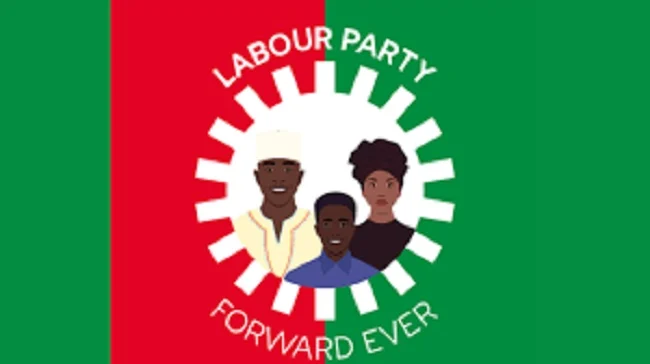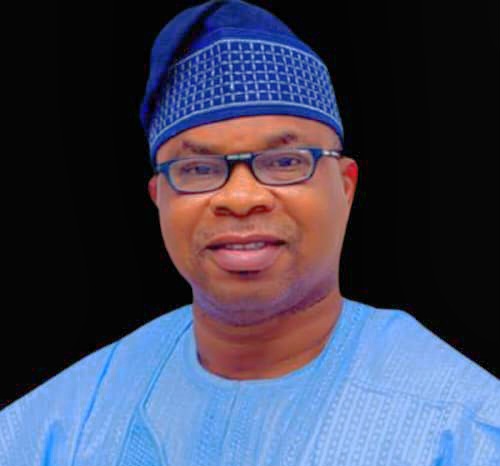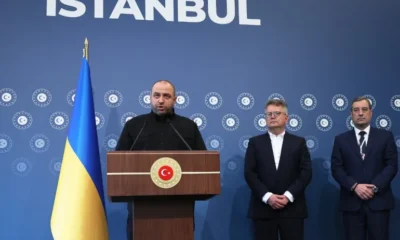Opinion
Trump Is Letting Putin Win

Every day without leadership from Washington means more bloodshed in Ukraine – and more cracks in global security.
Russian and Ukrainian delegations met in Istanbul for the second time in a month on June 2 to explore the possibility of a ceasefire. The talks lasted just over an hour and, once again, produced no meaningful progress. As with the May 16 negotiations, both sides claimed they had laid the groundwork for prisoner exchanges. But despite Ukraine’s offer to hold another meeting before the end of June, a deep and unbridgeable divide remains between Kyiv and Moscow.
More meetings are unlikely to change that. Russia continues to demand Kyiv’s capitulation to the full list of conditions President Vladimir Putin set at the war’s outset: Ukrainian neutrality, a government reshaped to suit Moscow’s interests, and the surrender of the Donetsk, Luhansk, Zaporizhia and Kherson regions. Between the two rounds of talks, Putin even raised the stakes, adding a demand for a “buffer zone” in northern Ukraine.
After Putin call, Trump says Russia, Ukraine will start ceasefire talks
end of list
Kyiv, meanwhile, remains resolute. It refuses to cede any territory and maintains that a full ceasefire along all fronts is a non-negotiable precondition for serious negotiations.
Still, both sides appear prepared to continue the diplomatic charade.
That’s because these talks are not truly about achieving peace or securing a lasting bilateral agreement. Neither side is genuinely negotiating with the other. Instead, both are using the forum to send messages to the United States – and to Donald Trump, in particular.
This dynamic persists despite Trump’s recent efforts to distance himself from the war he once claimed he could end within 24 hours of returning to the White House. That shift in rhetoric has been echoed by key figures in his administration. Vice President JD Vance and Secretary of State Marco Rubio, who just six months ago represented opposite ends of the Republican spectrum on Ukraine – with Vance nearly endorsing surrender to Putin, and Rubio among the Senate’s most vocal Ukraine hawks – have both signalled that Trump’s White House is no longer interested in mediating the conflict. Reflecting that disengagement, there was no high-level prenegotiation meeting between US and Ukrainian officials in Turkiye ahead of the latest talks, unlike those held in May.
Yet despite Rubio’s apparent reversal – likely intended to align with Trump – Ukraine still enjoys broad support in the US Senate, including from senior Republicans. A bipartisan bill aimed at codifying existing sanctions on Russia and imposing new ones – thereby limiting Trump’s power to roll them back – has garnered 81 Senate co-sponsors. The bill’s authors, Senators Lindsey Graham (R–South Carolina) and Richard Blumenthal (D-Connecticut), recently travelled to Kyiv to reaffirm their backing. Graham has suggested the bill could move forward in the coming weeks.
Still, Ukraine knows the bill stands little chance in the House of Representatives without Trump’s blessing. Despite Trump’s enduring animosity towards Ukrainian President Volodymyr Zelenskyy, Kyiv has recently adopted a more deferential posture, particularly after their disastrous February meeting in Washington. The Ukrainian government quickly signed and ratified the so-called “minerals deal” that Trump demanded last month. A subsequent meeting between the two leaders – held on the sidelines of Pope Francis’s funeral – was notably more productive.
So far, Kyiv’s strategy of appeasement has yielded little change in Trump’s approach. While Trump has occasionally hinted at taking a tougher stance on Putin – usually in response to particularly egregious Russian attacks on Ukrainian civilians – he consistently deflects when asked for specifics. For months, he has promised to reveal his plan for Ukraine “in about two weeks,” a vague assurance that remains unfulfilled. A new sanctions package reportedly prepared by his own team over a month ago still sits untouched.
Hoping that mounting battlefield violence or bipartisan pressure from the US Senate might force Trump to act, Kyiv presses on with negotiations. Just one day before the Istanbul talks, Russia launched a record-setting overnight assault on Ukraine, firing more than 430 missiles and drones. Ukraine responded forcefully: on June 1, it conducted a large-scale drone strike deep inside Russia, destroying dozens of military aircraft, including airborne command platforms and nuclear-capable bombers.
Yet these high-profile losses have done little to shift Putin’s strategy. He continues to use the negotiation process as a smokescreen, providing Trump with political cover for his inaction. Meanwhile, Russian forces are advancing, making incremental gains in northern Ukraine’s Sumy region – where they hope to establish a “buffer zone” – and pushing forward on the southwestern Donetsk front.
Ultimately, Ukraine’s ability to strike deep inside Russian territory, including potentially vulnerable targets like oil infrastructure, may have more bearing on the war’s trajectory than any outcome from the Istanbul talks. Yet neither military escalation nor stalled diplomacy seems likely to bring a swift end to the conflict.
Trump says he abhors the civilian toll of this war, even if he stops short of blaming Putin for starting it. But it is Trump’s lack of strategy – his hesitation, his mixed signals, his refusal to lead – that is prolonging the conflict, escalating its brutality and compounding its risks for global stability.
Trump’s advisers may call it “peace through strength,” but what we are witnessing is paralysis through posturing. Russia’s delegation in Istanbul was never a step towards resolution – it was a diplomatic decoy, shielding a brutal military advance. If Trump refuses to back a serious escalation in pressure on Moscow – through expanded sanctions and renewed military aid to Kyiv – he won’t just fail to end the war. He will become complicit in prolonging it. The choice before him is clear: lead with resolve, or let history record that under his watch, weakness spoke louder than peace.
Aljazeera.com
Opinion
Edo State To Spend N1billion On Armoured Car For Speaker, N4.6billion On Vehicles For Lawmakers

The budget also reveals that N4.6 billion is planned for vehicles for the 25 members of the State House of Assembly.
Reporters’ review of the Edo State approved budget for 2026 shows that N1billion has been allocated to purchase an armoured vehicle for the Speaker of the State House of Assembly.
The budget also reveals that N4.6 billion is planned for vehicles for the 25 members of the State House of Assembly.
Also, N50million is planned for the purchase of refrigerators and other equipment for four directors. The House of Assembly Commission also plans to spend 200 million naira on roof and window replacement for its office building.
Earlier, a civic accountability group, MonITng, raised concerns over the execution of a multi-million-naira education project in Edo State, citing poor quality, procurement irregularities, and a recurring pattern of questionable contract awards.
“A project titled ‘Building of Blocks of Classrooms at Ojah Comprehensive High School, Akoko LGA, Edo State’ with project code ZIP20240448, valued at ₦222,000,000.00, and awarded under the Federal Polytechnic Auchi, Federal Ministry of Education, has raised serious concerns about the quality of execution, contract pricing, and procurement integrity.”
According to MonITng, its team tracked and inspected the project site. “Our team tracked and visited the project site and confirmed that although the classrooms were completed, they were poorly constructed.”
The group further noted: “The structure lacks basic finishing elements such as landscaping, proper drainage, and standard finishing works, all of which should have been included and adequately executed, given the huge sum budgeted for the project.”
It added that “the poor quality of work raises questions about project supervision, contract oversight, and how the allocated funds were spent.”
MonITng also linked the project to a contractor allegedly tied to multiple controversial contracts. “Even more troubling is the pattern we uncovered. The project was executed by Sam Sedi Nig. LTD, a company that has consistently received major contracts facilitated by Senator Adams Oshiomhole.”
The group claimed that “this same contractor handled the abandoned ERGP20245252 project, Construction of Warake to Ivbiaro Road in Owan East LGA, valued at ₦200,000,000.00, which remains incomplete despite significant disbursements.”
“Additionally, the same company implemented a controversial agricultural empowerment programme in Etsako communities, also facilitated by Senator Oshiomhole.”
MonITng alleged that “the recurring involvement of this contractor in multiple projects, combined with substandard delivery and abandoned works, suggests a pattern of procurement manipulation, inflated contracts, and possible diversion of public resources.”
It added that “the situation reflects how public projects, although completed on paper, often fail to deliver a meaningful impact due to corruption, poor supervision, and a lack of accountability.”
Opinion
APC E-registration Plot To Manipulate 2027 Polls – Ogun LP

The Ogun State chapter of the Labour Party has accused the All Progressives Congress of using its ongoing electronic membership registration to allegedly manipulate figures ahead of the 2027 general elections.
In a statement issued on Wednesday, the state chairman of the Labour Party, Chief Oluwabukola Soyoye, claimed that the APC’s e-registration exercise was designed to digitally inflate its membership strength and project a false image of popularity in the state.
Soyoye alleged that the ruling party had resorted to electronic registration because it could no longer mobilise people openly, insisting that the administration of Governor Dapo Abiodun had suffered widespread rejection due to what he described as underperformance.
According to him, the APC’s e-registration, presented as a routine membership drive, was in reality “a political referendum that exposes the deep rejection of Governor Dapo Abiodun and his black-market style of governance by the people of Ogun State.
“The people of Ogun are now wiser. They have deliberately refused to participate in any open, physical APC registration because they know the ruling party has failed them,” Soyoye said.
“That is why the APC has resorted to this so-called electronic registration — a system that allows figures to be fabricated behind closed doors without the presence of real members.”
The LP further alleged that the electronic platform could be used to manipulate membership data, inflate figures and create a misleading narrative of political dominance ahead of 2027
“What we are witnessing is not a genuine political exercise but a fraudulent digital operation designed to manufacture legitimacy for a government that has lost the confidence of the people,” Soyoye added.
Opinion
Let These Campaigns Of Calumny Against AMBO Stop Forthwith

By Kola Odepeju
“Calumny Is Only The Noise Of Madmen” –Diogenes
As Osun state gubernatorial election draws nearer, we’re now at the dawn of the campaigns for the coming election and so as characteristic of Nigeria’s democracy, wrong accusations, blackmails, character assassinations and all manner of negative campaigns aimed at demarketing the most popular candidate with the highest chances of coasting home to victory in a major election of this nature, must surface. And so in our own dear Osun state here this ugly trend has started surfacing. The mudslinging that has started from Governor Ademola Adeleke’s Accord Party’s camp against the APC gubernatorial candidate, Asiwaju Munirudeen Bola Oyebamiji AMBO is ‘normal’ and expected because with the massive support for AMBO across the nook and cranny of the state, it’s crystal clear that he’s the candidate to beat.
As mentioned above, a candidate to beat in any major election is bound to face vilifications by his opponents who see him as a threat and a stumbling block against the success of their own ambitions. Therefore given the nature of our politics in this part of the world, the negative campaigns that have started against AMBO are no surprise. We witnessed the same thing against the incumbent president, Asiwaju Bola Tinubu during the 2023 electioneering campaigns for the office of the country’s president. But against all odds, Asiwaju Tinubu emerged victorious. So as Asiwaju Tinubu emerged victorious in 2023, l have that strong conviction that our own Asiwaju Bola Oyebamiji will also become victorious in the coming August gubernatorial election in the state irrespective of whatever negative campaigns that may come up against him. This is because the AMBO governorship project is divinely ordained.
Amongst other attacks that are still likely to come up against him as we face the election and as the election faces us, we have heard from those who are afraid of losing power that AMBO is the architect of half salaries in Osun (as if he was the governor in that era). We have also heard from them that he’s not youth-friendly. The spokesperson to governor Adeleke, Malam Olawale Rasheed also amplified these two negative points in his latest article aimed at demarketing AMBO. Like I mentioned, the negative campaigns have just started. We are still going to hear more. I wonder why people cannot engage in issues-based campaigns instead of vilifying candidates.
Ambo has told Osun youths the program he has for them. He has promised to take care of them. And as a God-fearing and honest leader who keeps to his words, l believe he will not renege on his promise for the youths and also his promises for Osun people generally. So let those who revel in vilifying a credible candidate like AMBO tell Osun youths the programs they have for them rather than calumniating a visionary and capable leader who has what it takes to deliver the goods. Of course AMBO – being a focused leader – needs not to bother himself about the negative campaigns being circulated against him by his political detractors because William Shakespeare had for long told us that “*Be thou as chaste as ice, and as pure as snow, thou shall not escape calumny*”. And George Washington also mentioned it that “*Silence is the best answer to false accusations*”.
Finally, the Yorubas in their words do say that “maligning the honey doesn’t reduce its sweetness”. No matter the level of negative campaigns against the APC gubernatorial candidate towards the election, it won’t reduce the love the Osun people have for him while it won’t deter them from casting their votes for him in the upcoming gubernatorial election in the state. He will surely come out victorious by the special Grace of God Almighty 🙏. For, Vox populi vox dei. AMBO should continue on the path of issues-based campaigns and close his eyes against malignant talks by those who are already on their way out of power.
● Odepeju, newspaper columnist and political activist, writes from Iragbiji, Osun state.
-

 Politics2 days ago
Politics2 days agoAssembly Confirms Popular Redeemed Pastor As Deputy Governor
-

 Foreign2 days ago
Foreign2 days agoCabinet Reshuffle: President Sacks Finance Minister
-

 Business2 days ago
Business2 days agoJUST IN: 13 Banks May Shut Down In March As CBN Confirms 20 Safe For Recapitalisation Deadline
-

 Politics9 hours ago
Politics9 hours agoBREAKING: “Serial Disrespect” Sparks Drama As Senate Order Arrest Of Tinubu’s Appointee
-

 Politics10 hours ago
Politics10 hours agoOpposition Leaders Urge N’Assembly To Begin Fresh Electoral Act Amendment
-

 Opinion9 hours ago
Opinion9 hours agoEdo State To Spend N1billion On Armoured Car For Speaker, N4.6billion On Vehicles For Lawmakers










